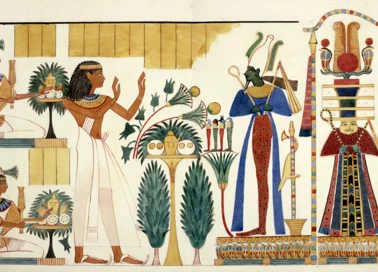Throughout history, ancient civilizations have looked to the stars and planets for guidance, wisdom, and a deeper understanding of the universe. The study of astrology has played a significant role in these cultures, shaping their beliefs, practices, and even influencing their societal structures. From Mesopotamia to Egypt, Greece to China, and Mesoamerica to India, each civilization had its unique interpretation and application of astrology. By exploring the connections between these ancient civilizations and astrology, we can gain insights into their belief systems, cultural practices, and the enduring human fascination with the celestial realms. So let us embark on a journey through time, delving into the rich tapestry of ancient civilizations and how they intertwined with the wonders of astrology.
Ancient Mesopotamia
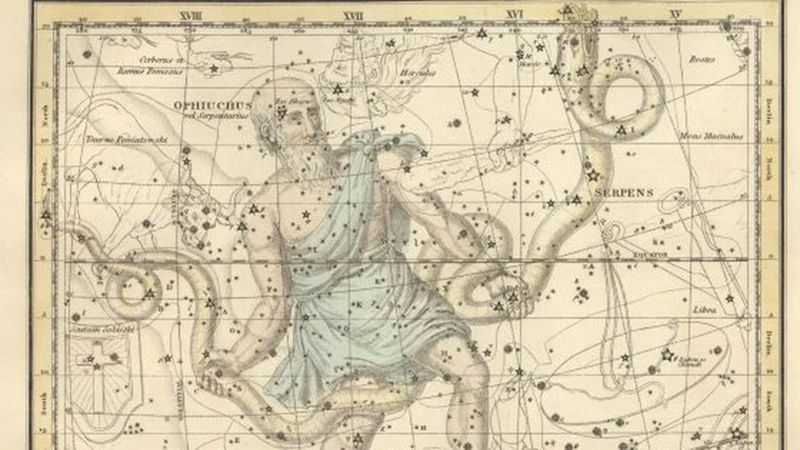
In ancient Mesopotamia, the study of astrology was deeply ingrained in the fabric of society. The Mesopotamians believed that the movements and positions of celestial bodies held great significance and could offer valuable insight into human affairs. Astrological practices such as omen interpretation and the casting of horoscopes were widely employed by priests and scholars to predict the future, make important decisions, and understand the will of the gods. The clay tablets of the Enuma Anu Enlil, a collection of celestial omens, provide a fascinating glimpse into the astrological beliefs and practices of this ancient civilization. These tablets document celestial events and their perceived impact on various aspects of life, including politics, agriculture, and warfare. The influence of astrology in Mesopotamia extended beyond the realm of divination, shaping the very structure of society. Knowledge of astrology was reserved for the elite ruling class, as rulers believed that their destinies were intricately tied to the movements of the celestial bodies. This belief was further reinforced by the concept of divine kingship, which maintained that the ruler was a representative of the gods on Earth. Thus, astrology played a pivotal role in shaping political decisions, governance, and the relationships between the rulers and their subjects. Understanding the role of astrology in Mesopotamian culture not only provides us with a glimpse into their worldview but also highlights the enduring belief in the cosmic connections between the celestial and earthly realms.
Astrological Practices
Astrological practices in ancient Mesopotamia were deeply rooted in the belief that celestial bodies held profound influence over human affairs. The priests and scholars of Mesopotamia relied on various techniques to interpret celestial omens and gain insights into the future. One prominent astrological practice was the interpretation of celestial events, such as the movement of planets, comets, and eclipses. These celestial omens were meticulously recorded and analyzed in order to determine their potential impact on different aspects of life. The priests would then interpret these omens using a series of complex methodologies, including the examination of celestial charts and mathematical calculations. The casting of horoscopes was another vital astrological practice in Mesopotamia, used to predict the future of individuals based on the alignment of the stars and planets at the time of their birth. This practice allowed individuals and rulers to make important decisions, plan events, and understand their personal destiny. The knowledge and understanding of astrology were not accessible to everyone in Mesopotamian society. It was primarily held by the ruling elite and religious authorities, who used astrology as a tool to maintain their power and make informed decisions. The intricate astrological practices in ancient Mesopotamia highlight the significance placed on celestial divination and the desire to decipher the messages from the gods through the movements of the stars and planets. Understanding the role of astrology in Mesopotamian culture sheds light on the complexity and richness of their belief systems and societal structures. For more information on the role of astrology in ancient civilizations, you can read about the role of astrology in Mesopotamian culture.
Influence on Civilization
The influence of astrology on Mesopotamian civilization was profound, permeating various aspects of daily life and societal structures. Here are some key ways in which astrology shaped the civilization:
1. Political Decision-making: Mesopotamian rulers heavily relied on astrology to guide their political decisions. They believed that the positions and movements of celestial bodies held direct implications for the fate of their kingdoms. Important decisions, such as whether to wage war or enter into alliances, were often made based on astrological omens and predictions.
2. Divination: Astrology served as a crucial tool for divination in Mesopotamia. Priests and scholars would interpret celestial omens, such as the appearance of comets or the positioning of planets, to gain insights into the future. These interpretations would then determine the course of action in various areas, including agriculture, trade, and governance.
3. Social Hierarchy: Astrology played a role in reinforcing the social hierarchy in Mesopotamian society. The ruling class, including kings and nobles, believed that they were connected to the gods through their birth charts and celestial alignments. This divine connection bestowed upon them a sense of supreme authority and legitimacy, while the common people looked to them for guidance and protection.
4. Religious and Spiritual Beliefs: Astrology was deeply intertwined with Mesopotamian religious practices and cosmology. The celestial bodies were associated with specific deities, and their movements were seen as manifestations of divine will. Temples and sacred spaces were often aligned with astronomical events, creating a symbolic link between the heavens and Earth.
5. Record-Keeping and Astrological Tablets: Mesopotamia is known for its extensive record-keeping, and astrology was no exception. Astrological observations, omens, and predictions were meticulously recorded on clay tablets, providing valuable insights into the astrological practices of the time. These tablets not only aided in contemporary decision-making but also served as a historical record for future generations to study.
The influence of astrology on Mesopotamian civilization cannot be understated. It shaped political decisions, contributed to the social hierarchy, formed the basis of religious beliefs, and left behind a wealth of astrological knowledge for generations to come. By delving into the impact of astrology on ancient civilizations, we gain a deeper understanding of the interconnectedness between the celestial and earthly realms.
Ancient Egypt
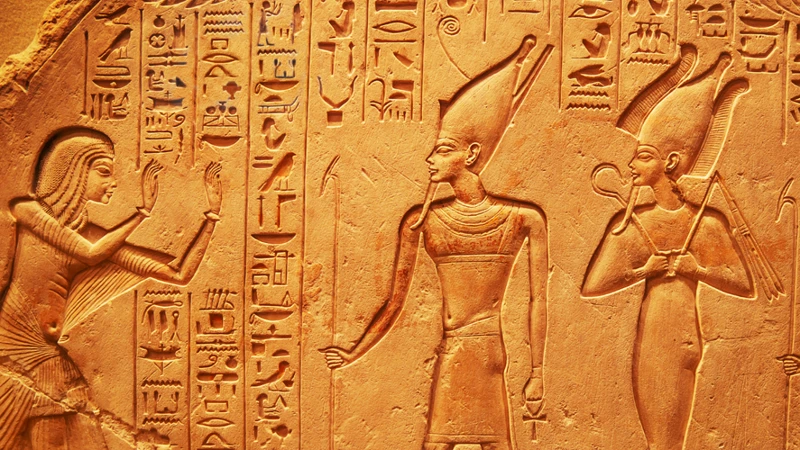
In the ancient civilization of Egypt, astrology played a vital role in shaping their religious beliefs, political structure, and daily life. Astrology and Divine Kingship were intertwined in Egypt, where pharaohs were seen as the earthly manifestations of gods and were believed to have a direct connection with the celestial realms. The alignment of the pharaoh’s birth chart with the stars was considered crucial in determining their suitability for rulership. The Egyptian priests were skilled astrologers who meticulously studied the movements of the planets and the patterns of the stars to predict the future and guide important decisions. The ancient Egyptians used astrology to determine auspicious dates for events such as coronations, temple construction, and agricultural activities. The alignment of the pyramids and temples with specific stars and constellations further signifies the significance of astrology in Egyptian culture. By delving into the fascinating world of Egyptian astrology, we can gain a deeper understanding of their worldview and the profound influence of the celestial bodies on their civilization.
Astrology and Divine Kingship
The close relationship between astrology and divine kingship in ancient civilizations, such as Mesopotamia, is a fascinating aspect to explore. In Mesopotamian culture, rulers believed that they were divinely chosen and that their reign was influenced by the celestial bodies. The concept of divine kingship held that the ruler was a representative of the gods on Earth, and their fortunes were intricately linked to celestial events. Astrology played a crucial role in validating and reinforcing this belief. Astrologers in ancient Mesopotamia closely observed the movements of planets, stars, and other celestial phenomena, seeking omens and signs that would guide the ruler’s decisions. They believed that celestial events, such as planetary alignments or the appearance of comets, carried symbolic messages from the gods. By interpreting these celestial omens, astrologers would advise the king on matters of governance, warfare, and even personal fate. The alignment of a ruler with the heavenly bodies through astrology was seen as a validation of their legitimacy and an indication of their success or failure. It was believed that a prosperous and righteous ruler would have a favorable alignment of planets, while an unfavorable alignment could signal impending doom or the need for corrective action. Thus, astrology played a vital role in the maintenance of divine kingship, reinforcing the ruler’s authority and providing guidance for their rule. This harmonious relationship between astrology and divine kingship can also be observed in other ancient cultures, such as China, where similar beliefs and practices were prevalent. Exploring the role of astrology in the concept of divine kingship provides us with a deeper understanding of the intricate connections between the celestial and earthly realms and their influence on ancient civilizations.
Aligning with the Stars
In ancient Egypt, the civilization revered for its mastery of astronomy and its deep connection to the cosmos, the practice of aligning with the stars was of utmost importance. Egyptian astronomers and priests closely monitored the movements of celestial bodies and observed their alignment with key structures and architectural monuments. This practice was not only a reflection of their fascination with the heavens but also held religious and spiritual significance. The alignment of temples, pyramids, and other sacred structures with specific stars, such as Sirius and Orion, was believed to establish a connection between the earthly realm and the divine realm. It was believed that these alignments allowed for a harmonious flow of cosmic energies, benefiting the pharaoh and the entire kingdom. One notable example of this alignment is found in the Great Pyramid of Giza. The shafts within the pyramid were constructed in such a way that they aligned perfectly with certain stars during specific times of the year, serving as a celestial conduit for the pharaoh’s journey into the afterlife. This alignment was not only a testament to the advanced astronomical knowledge of the Egyptians but also a testament to their spiritual beliefs and the profound influence the stars held in their lives. To explore further how different ancient civilizations integrated astrology into their cultures, you can read about the role of astrology in ancient China.
Ancient Greece
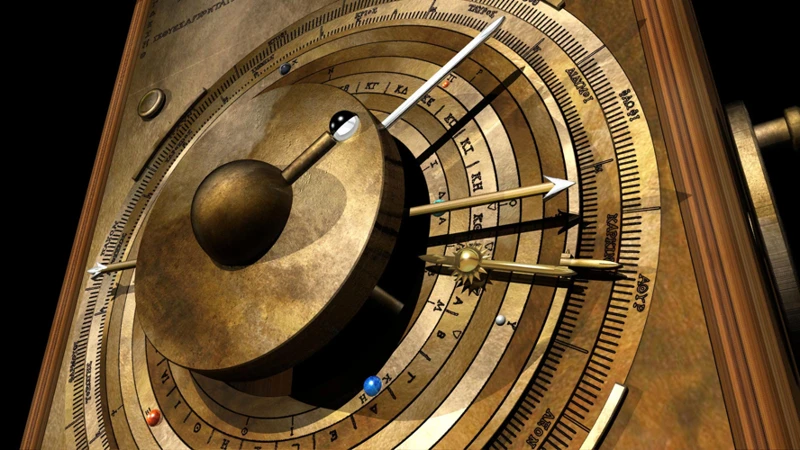
Ancient Greece, often regarded as the cradle of Western civilization, was a hub of intellectual and philosophical exploration, where astrology held a significant place. In Greek mythology and philosophy, the celestial realm played a prominent role, with various gods and goddesses associated with the planets and stars. Astrology in mythology and philosophy intertwined concepts of fate, destiny, and the influence of celestial bodies on human lives. Greek astronomers, such as Ptolemy and Hipparchus, made significant contributions to the field of astronomy, laying the foundation for the development of astrology. Interestingly, astrology and astronomy were closely connected in ancient Greece, with the study of celestial phenomena serving both scientific and metaphysical purposes. The Greeks believed that the movements of celestial bodies reflected divine will and had the power to shape human affairs. Astrology became a tool for understanding human behavior, predicting events, and offering guidance. From the concept of the zodiac to the idea of planetary influences on personality traits, astrology had a profound impact on Greek cultural and intellectual life. It is through the lens of astrology that we can gain a deeper understanding of the interconnectedness of myth, philosophy, and the fascination with the cosmos in ancient Greece.
Astrology in Mythology and Philosophy
In ancient Greece, astrology found its place not only in the realms of divination and prediction but also in mythology and philosophy. The Greeks believed that the gods and goddesses themselves were connected to the celestial bodies, each ruling over a specific planet or constellation. Astrology in mythology played a vital role in explaining the interactions and relationships between the gods and mortals. For example, the tale of Zeus, the king of the gods, and his father Cronus, highlights the cosmic significance of the planets. According to the myth, Cronus feared that one of his children would overthrow him, so he devoured them. However, Zeus, who managed to escape, eventually challenged and overthrew his father, becoming the ruler of Mount Olympus. This myth is seen as an allegory for the cosmic cycles, with the planets representing the gods and their rise and fall corresponding to their positions in the sky.
In philosophy, astrology held a prominent place as well. The great philosopher Plato believed in a cosmic harmony between the heavens and the earthly realm. He proposed the concept of the “Music of the Spheres,” suggesting that the planets and celestial bodies emitted harmonious vibrations that influenced all aspects of existence. This idea was further developed by later philosophers, such as Pythagoras and Aristotle. They argued that the movement and arrangement of the planets and stars reflected the harmonious order of the universe and could be used to gain a deeper understanding of the natural world and the human condition.
The influence of astrology in mythology and philosophy demonstrates the deep connection between the celestial and human realms in ancient Greece. It was not only a way to predict the future or understand the gods but also a tool to explore the fundamental questions of existence and the intricate web that connects all things in the cosmos.
Astronomy and Astrology
In ancient Greece, the interplay between astronomy and astrology was prominent and influenced various aspects of their culture. Astronomy, the study of celestial bodies and their movements, served as the foundation for astrology, which focused on interpreting these celestial events and their influence on human affairs. Greek philosophers, such as Plato and Aristotle, sought to understand the natural laws governing the cosmos through astronomy. They observed the stars and planets, formulated theories about their motions, and attempted to explain the underlying principles of the universe. This pursuit of astronomical knowledge provided the groundwork for the development of astrology, which sought to understand how the positions and configurations of the celestial bodies could impact human lives.
The ancient Greeks believed that the alignment of planets and stars possessed profound significance. Astrologers studied these celestial movements and their patterns to make predictions and offer guidance on various aspects of life, including relationships, health, and career. The belief in the interconnectedness of celestial and earthly realms was deeply ingrained in Greek culture, influencing not only individuals but also political decisions and social structures. Rulers often consulted astrologers to gain insight into the consequences of their actions and to ensure the favor of the gods.
One of the most well-known applications of astrology in ancient Greece was the zodiac. The zodiac, a band of constellations encircling the Earth, was divided into twelve signs, each associated with specific personality traits and characteristics. This system, still widely used today, allowed individuals to determine their zodiac sign based on their birthdate, thereby providing insight into their temperament and potential future events.
While there were those who viewed astrology with skepticism, it nevertheless played a significant role in Greek mythology and literature. Many of the Greek gods and goddesses were associated with specific celestial bodies, emphasizing the intricate connection between the divine and the celestial realms. The influence of astronomy and astrology is evident in countless Greek myths and legends, where the actions of the gods and heroes were often guided by or reflected in celestial events.
The ancient Greeks’ fascination with astronomy and astrology endured for centuries, influencing their art, literature, and scientific pursuits. The study of the cosmos not only provided them with a window into the mysteries of the universe but also shaped their understanding of humanity and its place within the grand tapestry of existence.
Ancient China
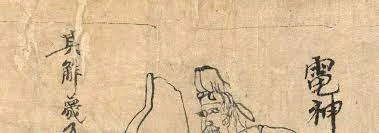
In ancient China, astrology played a profound role in shaping various aspects of society and culture. The Chinese believed that the movements of celestial bodies held significant influence over the lives of individuals and the destiny of the nation. The Zodiac and Dynastic Cycles were intricately interconnected, with each dynasty believed to be associated with a specific animal sign in the Chinese zodiac. These astrological associations were used to predict and interpret the rise and fall of dynasties, providing insight into the fate and prosperity of the nation. Chinese astrological systems, such as the Four Pillars of Destiny and the Five Elements, were developed to create horoscopes and provide guidance on matters of personal and social importance. These systems incorporated the concepts of yin and yang, the interplay of opposing forces, and the balance of energies. Astrology in ancient China was deeply embedded in everyday life, influencing important decisions such as marriage, commerce, and governance. As such, understanding the role of astrology in ancient Chinese society allows us to appreciate its enduring impact and its continued relevance in contemporary Chinese culture.
The Zodiac and Dynastic Cycles
In ancient China, astrology played a significant role in understanding the cyclical nature of time and the rise and fall of dynasties. Central to this understanding was the concept of the Zodiac. The Chinese Zodiac consists of twelve animal signs, each representing a different year in a twelve-year cycle. The animals include the Rat, Ox, Tiger, Rabbit, Dragon, Snake, Horse, Sheep, Monkey, Rooster, Dog, and Pig. Each animal sign is believed to possess distinct characteristics that influence the destiny and personality traits of individuals born during their respective years. The Zodiac was not only used for personal fortune-telling but was also connected to the dynastic cycles of China. The alignment of celestial bodies, particularly the sun, moon, and planets, was believed to have a profound impact on the fate of rulers and the rise and fall of dynasties. Astrologers and scholars used the Zodiac as a predictive tool to determine the auspicious times for important events such as the coronation of emperors or the selection of successors. The cyclic nature of the Zodiac represented the ebb and flow of power and the impermanence of ruling dynasties. The belief was that when a dynasty’s astrological cycle neared its end, it would be a time of upheaval and chaos, ultimately leading to the downfall of the ruling regime. This understanding of the relationship between the Zodiac and dynastic cycles provided a framework for rulers to make decisions about governance, succession, and maintaining cosmic harmony. So, the Zodiac served not only as a tool for individual fortune-telling but also as a guide for the political and social order in ancient China.
Chinese Astrological Systems
Chinese Astrological Systems
Chinese astrology has a rich and complex system that has evolved over thousands of years. One of the most well-known components of Chinese astrology is the Chinese zodiac, a twelve-year cycle, with each year associated with a specific animal sign: Rat, Ox, Tiger, Rabbit, Dragon, Snake, Horse, Sheep, Monkey, Rooster, Dog, and Pig. These animal signs are believed to have different characteristics and traits that influence a person’s personality, destiny, and compatibility with others. Additionally, Chinese astrology also incorporates the Five Elements: Wood, Fire, Earth, Metal, and Water. These elements are believed to interact with the animal signs, further influencing a person’s destiny and character. The combination of the animal sign and the element creates a sixty-year cycle, known as the sexagenary cycle. This cycle is widely used in Chinese astrology for determining auspicious dates for important events, such as weddings or business ventures. To further refine astrological predictions, Chinese astrology also considers the time of birth, as well as the positions of the stars and planets. By analyzing these factors, astrologers can provide detailed insights into a person’s life, career, relationships, and health. Chinese Astrology continues to be widely practiced and consulted in many aspects of Chinese culture, including personal life decisions, matchmaking, and even business partnerships. Its intricate and comprehensive system provides a fascinating glimpse into the ancient wisdom and beliefs of Chinese civilization.
Ancient Mesoamerica

In the ancient civilizations of Mesoamerica, astrology played a profound role in their cosmology and societal practices. The Mayans, Aztecs, and other Mesoamerican cultures believed that the celestial bodies held immense power and influence over human destiny. Through their observations of the stars, they developed a complex system of astrology and cosmology that guided their religious rituals, agricultural cycles, and even the construction of their architectural marvels. Mayan astrology and cosmology were deeply intertwined, with the Mayans developing a sophisticated calendar system that integrated celestial events and cycles. The Mayan Long Count Calendar, for example, was a precise method of tracking time and predicting future events based on the movements of the celestial bodies, particularly the sun and the moon. Additionally, the alignment of structures, such as temples and pyramids, with astronomical events served both practical and symbolic purposes. These alignments were believed to enhance the spiritual power of these structures and ensure harmony between the earthly and celestial realms. The study of astrology in ancient Mesoamerica not only reveals the profound connection between humans and the cosmos but also reflects the pursuit of divine knowledge and the quest for understanding the mysteries of the universe.
Mayan Astrology and Cosmology
Mayan Astrology and Cosmology played a central role in the lives of the ancient Mayan civilization. The Mayans had a deep understanding and reverence for the celestial realm, believing that the movements of the stars and planets directly influenced human existence. Their intricate astronomical observations allowed them to create precise calendars that not only marked the passage of time but also served as a guide for agricultural practices, religious ceremonies, and societal events. The Mayans developed a complex astrological system based on 20-day cycles called “tzolk’in” and 365-day cycles known as “haab.” These cycles were believed to correspond with the energies and characteristics of deities and natural elements, offering insight into individual and collective destinies. The Mayans also assigned specific symbols, known as “day signs,” to each day in their calendars. These day signs represented a combination of astronomical and mythological elements, reflecting the unique qualities and influences associated with each day. The knowledge of Mayan Astrology was held by specialized priests and astrologers who performed rituals, interpreted celestial events, and advised the ruling class. The Mayan obsession with celestial alignment extended beyond calendars and horoscopes. Their magnificent pyramid-temples were architecturally designed to align with celestial bodies during significant astronomical events such as solstices and equinoxes. These alignments showcased the Mayans’ deep connection with the cosmos and their belief in harmonizing human activities with the celestial rhythms. Mayan Astrology and Cosmology not only provided a framework for understanding the world but also formed an integral part of their religious and cultural practices, reinforcing their spiritual connection to the heavens. By studying Mayan Astrology and Cosmology, we can gain insight into the intricate relationship between ancient civilizations and the cosmos, and appreciate the profound impact astrology had on the Mayan way of life.
Astrological Alignments in Architecture
Ancient Mesoamerican civilizations, such as the Maya, showcased an incredible understanding of astronomy and its integration into their architectural designs. These civilizations believed that the alignment of their structures with celestial bodies held immense spiritual and cosmic significance. The practice of incorporating astrological alignments in architecture allowed them to create sacred spaces that resonated with their cosmological beliefs. One notable example is the city of Chichen Itza, which features the renowned El Castillo pyramid. During the spring and autumn equinoxes, the shadow cast by the pyramid creates the illusion of a serpent slithering down the temple’s steps. This phenomenon, known as the “serpent effect” or the “snake of light,” symbolizes the rebirth and renewal associated with the changing seasons. Aligning their architecture with celestial events served not only as a testament to the astronomical knowledge of these civilizations but also as a means to connect their earthly structures with the divine realms. In addition to the equinox phenomenon, other structures in Mesoamerica were designed to align with specific celestial events, such as the rising and setting of the Sun or the positions of stars on significant dates in their calendar. These alignments were believed to enhance the spiritual energy of the spaces and facilitate communication with the gods. By understanding the intricate interplay between celestial bodies and architectural design, we can appreciate the profound connection ancient civilizations had with the cosmos and how they infused their daily lives with a sense of cosmic harmony and spiritual resonance.
Ancient India
Ancient India had a deep-rooted connection with astrology, with its rich history of Vedic astrology and Ayurveda. Vedic astrology, also known as Jyotish, is considered one of the oldest and most comprehensive astrological systems in the world. It is based on the belief that celestial bodies and their movements have a profound influence on human lives and destinies. Vedic astrology encompasses several branches, such as Natal astrology, Mundane astrology, and Muhurta astrology, each focusing on different aspects of life. This ancient practice is still widely followed in modern-day India, where astrologers are consulted for matters like marriage, career, and personal well-being. The influence of astrology on ancient Indian society went beyond the realm of predictions and horoscopes; it played a significant role in shaping religious and spiritual beliefs. In Hinduism, astrology is intricately woven into the concept of reincarnation and karma, with the belief that our deeds in past lives determine our present circumstances. Astrology is closely tied to the practice of Ayurveda, the traditional Indian system of medicine. Ayurvedic principles emphasize the alignment of body, mind, and spirit with the natural rhythms and cycles of the universe, which include planetary movements. Thus, the connection between astrology and spirituality in ancient India permeated various aspects of life, from birth charts to holistic healing practices.
Vedic Astrology and Ayurveda
Vedic Astrology and Ayurveda are inseparable components of the ancient Indian tradition, deeply intertwined and rooted in the belief in cosmic harmony and the interconnectedness of all things. Vedic Astrology, also known as Jyotish, is based on the belief that the positions and movements of celestial bodies can influence human lives and provide guidance for personal and spiritual growth. Ayurveda, on the other hand, is an ancient system of medicine that emphasizes maintaining balance and harmony within the body and with the natural world. These two disciplines share a common foundation in the Vedas, the ancient scriptures of India.
In Vedic Astrology, an individual’s birth chart, or horoscope, is created based on the precise time and place of their birth. The birth chart is a map of the cosmos at the moment of birth and reveals important information about an individual’s character, strengths, weaknesses, and life path. The alignment of planets and their relationship to one another holds significant meaning in Vedic Astrology and is used to make predictions and offer guidance on various aspects of life, including relationships, career, health, and spirituality.
Ayurveda, on the other hand, focuses on maintaining physical, mental, and spiritual well-being through a holistic approach. According to Ayurvedic principles, each individual has a unique combination of the three doshas – Vata, Pitta, and Kapha – which are the vital energies that govern the body and mind. An imbalance of these doshas can lead to illness, while a balanced state supports optimal health. Ayurveda utilizes various techniques such as herbal medicine, dietary guidelines, yoga, meditation, and lifestyle recommendations to restore balance and promote well-being.
The connection between Vedic Astrology and Ayurveda lies in their shared understanding of the interconnectedness of the universe and the importance of living in harmony with nature. Both disciplines recognize that the celestial bodies and natural elements have a profound impact on human beings and offer valuable insights into maintaining balance and promoting health. By aligning with cosmic energies as understood in Vedic Astrology and embracing the principles of Ayurveda, individuals can seek to lead a more balanced, purposeful, and harmonious life. It is a testament to the wisdom of the ancient Indian sages, who recognized the intricate connections between the stars, the human body, and the path to overall well-being.
Astrological Influence on Hinduism
The astrological influence on Hinduism has been deeply embedded in the fabric of this ancient and complex religion. Astrology is considered one of the Vedangas, or the auxiliary limbs of the Vedas, which are ancient sacred scriptures of Hinduism. Vedic Astrology, also known as Jyotish, is an intricate system of celestial observations and calculations that aims to reveal the past, present, and future of individuals and the world. In Hinduism, astrology is closely intertwined with concepts such as karma, fate, and the cycle of life and death. It is believed that the positions of celestial bodies at the time of one’s birth determine an individual’s personality traits, strengths, weaknesses, and life events. Astrology plays a crucial role in helping individuals understand their purpose in life, make informed decisions, and navigate challenges. It is also utilized in matching horoscopes for marriages and determining auspicious times for important events, such as weddings and ceremonies. Astrology influences Hindu religious practices, such as the timing of festivals and rituals, based on auspicious planetary alignments. The rich astrological symbolism can be seen in Hindu temple architecture, where intricate celestial motifs and alignments are incorporated into the design. The deep connection between astrology and Hinduism showcases the belief in the interconnectedness of the cosmos and human existence, reminding individuals of their place within the greater cosmic order. Understanding the astrological influence on Hinduism allows us to appreciate the depth and intricacy of this ancient religious tradition.
Conclusion
In conclusion, the exploration of astrology in ancient civilizations reveals a deep-rooted connection between humanity and the cosmos. From Mesopotamia to Egypt, Greece to China, Mesoamerica to India, astrology played a significant role in shaping beliefs, rituals, and societal structures. The ancient civilizations sought celestial guidance to understand the mysteries of the universe, predict the future, and make important decisions. Whether it was the alignment of stars with divine kingship in Egypt, the integration of astrology in mythological and philosophical frameworks in Greece, or the intricate astrological systems in China and India, these ancient cultures recognized the profound influence of the celestial realms on human life. Despite the differences in their interpretations and practices, there is a shared belief in the notion that the movements of the stars and planets can provide insight and meaning to our existence. Today, astrology continues to captivate and intrigue individuals worldwide, proving that the fascination with the cosmos transcends time and cultural boundaries. By exploring the rich tapestry of ancient civilizations and their astrological connections, we gain a deeper understanding of our collective human history and the enduring quest for cosmic wisdom.
Frequently Asked Questions
1. How did ancient Mesopotamians practice astrology?
Ancient Mesopotamians practiced astrology through various methods, such as omen interpretation and the casting of horoscopes. These practices involved observing celestial events, recording them on clay tablets, and interpreting their meanings to predict the future and make important decisions.
2. What was the significance of celestial omens in Mesopotamia?
In Mesopotamian culture, celestial omens held great significance as they were believed to provide insights into the will of the gods and the course of human affairs. These omens, documented on clay tablets, were used to understand and predict various aspects of life, including politics, agriculture, and warfare.
3. Who had access to astrological knowledge in Mesopotamia?
Astrological knowledge in ancient Mesopotamia was primarily reserved for the elite ruling class, including priests and scholars. This privileged access to astrology further reinforced the concept of divine kingship, where rulers believed their destinies were intertwined with the movements of celestial bodies.
4. How did astrology influence Mesopotamian society?
Astrology exerted a profound influence on Mesopotamian society, shaping everything from political decisions to the governance structure. The belief in cosmic connections between the celestial and earthly realms led rulers to consult astrological knowledge and incorporate it into their decision-making processes.
5. Were there specific celestial events that were considered important in Mesopotamian astrology?
Yes, certain celestial events held particular importance in Mesopotamian astrology. Eclipses, planetary conjunctions, and the positions of specific stars were carefully observed and interpreted as omens with potential impacts on different aspects of life. These events were believed to carry messages from the gods.
6. Did Mesopotamian astrology impact other ancient civilizations?
Absolutely! Mesopotamian astrology played a significant role in influencing other ancient civilizations, including Egypt, Greece, and even India. Astrological practices, beliefs, and ideas spread through trade, cultural exchange, and the migration of peoples, leaving a lasting impact on the astrological traditions of these cultures.
7. What were the main differences between Mesopotamian astrology and Egyptian astrology?
Mesopotamian astrology focused on celestial omens and the interpretations of those omens, while Egyptian astrology centered around the individual’s birth chart and the alignment of stars at the time of their birth. Additionally, while Mesopotamian astrology was closely tied to divine kingship, Egyptian astrology influenced concepts of pharaonic legitimacy and dynastic power.
8. How did the Greeks incorporate astrology into their mythology and philosophy?
The Greeks incorporated astrology into their mythology and philosophy by intertwining celestial bodies with their gods and goddesses. They believed that the movements of the stars and planets influenced both the physical and metaphysical aspects of life, and astrological concepts were deeply embedded in works of literature and philosophical discourse.
9. What was the significance of the Chinese zodiac in ancient China?
In ancient China, the zodiac played a significant role in understanding the cyclical patterns of time and their connection to human life. The Chinese zodiac is based on a 12-year cycle, with each year associated with a specific animal sign. These animal signs were believed to influence personality traits, fortunes, and compatibility.
10. How does Vedic astrology influence Ayurvedic practices in ancient India?
Vedic astrology had a profound influence on Ayurvedic practices in ancient India. According to Vedic beliefs, an individual’s astrological chart provides insight into their health, constitution, and predisposition to certain diseases. Ayurvedic practitioners would consider these astrological factors when diagnosing and prescribing treatments for patients.

